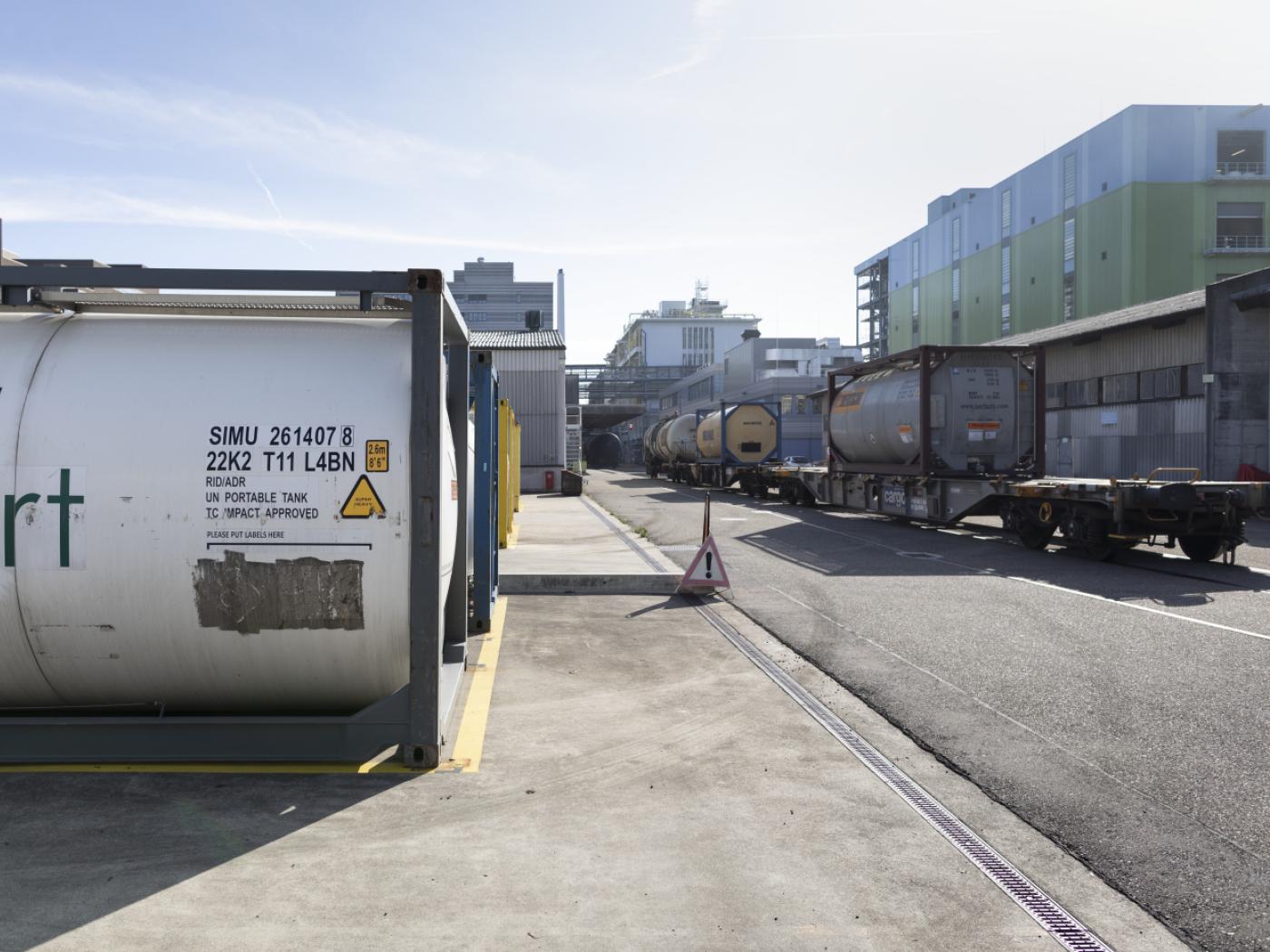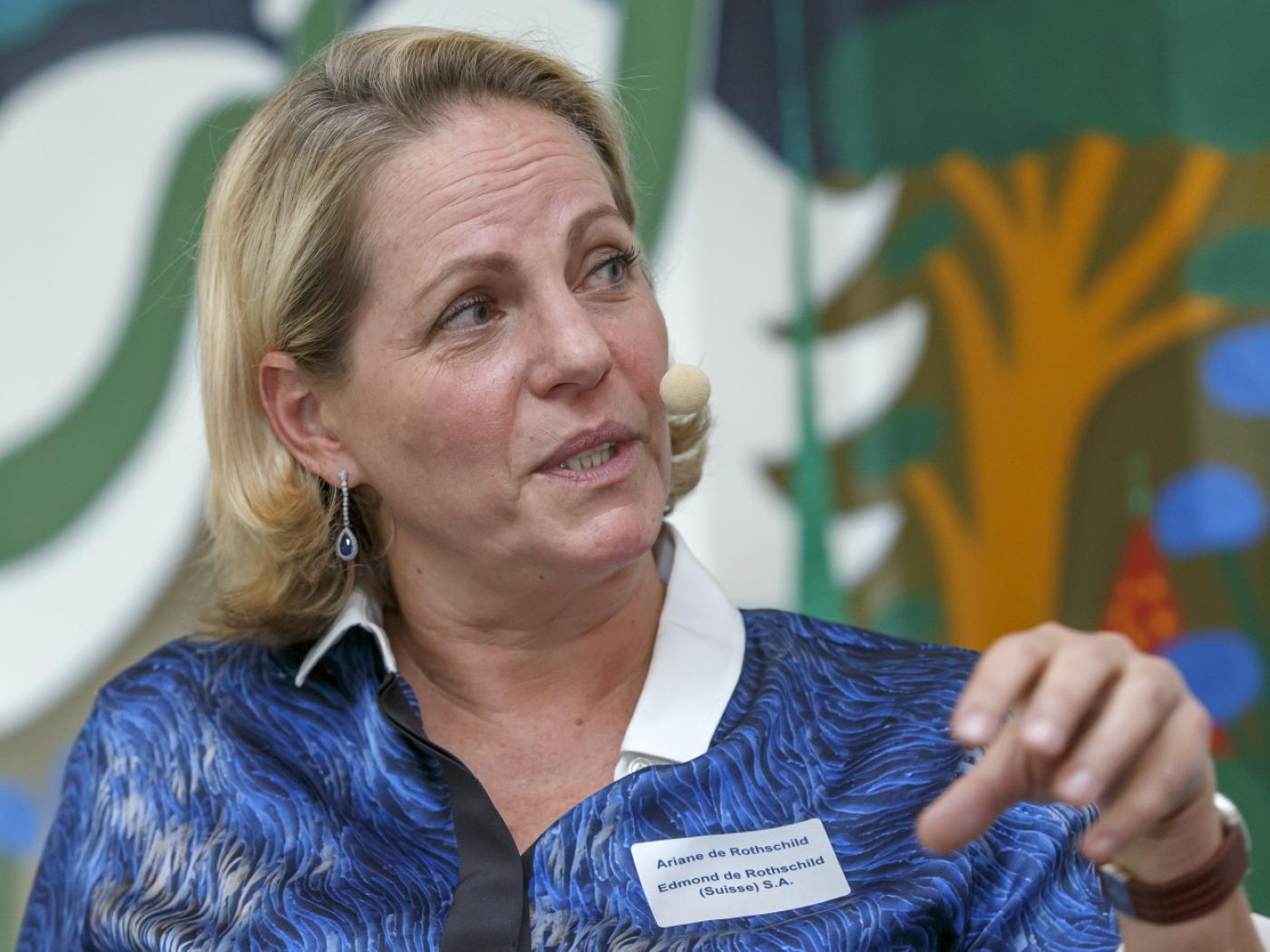
Executives tried to explain themselves at Credit Suisse’s last AGM. KEYSTONE/© KEYSTONE / MICHAEL BUHOLZER
In March 2023, Credit Suisse collapsed. An uncontrolled bankruptcy could only be prevented by big government aid and an emergency merger with competitor UBS. Switzerland is now waiting for a parliamentary inquiry report to reveal who was at fault as the bank disintegrated.
For some, Credit Suisse’s management and ex-chairman Axel Lehmann are solely to blame for the collapse. For others, Switzerland’s Financial Market Supervisory Authority (FINMA), led by Marlene Amstad, failed in its oversight task. For others again, former Swiss Finance Minister Ueli Maurer should have intervened earlier.
+ Who is to blame for the demise of Credit Suisse? The suspects.
Meanwhile, hardly anyone criticises the Swiss National Bank (SNB) President Thomas Jordan, despite the fact that he is responsible for financial stability in the country.
In March 2023, the SNB granted the ailing Credit Suisse a credit line of up to CHF250 billion ($285 billion) to protect it from uncontrolled collapse.
Inquiry report delayed
Switzerland is currently waiting for a report by the parliamentary inquiry committee into the bank’s demise. Chaired by Centre party politician Isabelle Chassot, the committee comprises a total of 14 parliamentarians who are examining the facts of the emergency takeover by UBS.
The first results were originally expected this spring, but the report has been repeatedly delayed, as the cross-examination of people involved is taking much longer than expected. Chassot currently assumes that it will be submitted towards the end of 2024.
Expectations are running high. Both politicians and the public want an answer to the question of who failed during the Credit Suisse debacle.
It is already clear that Lehmann and other former Credit Suisse leaders bear a large part of the responsibility. Several financial scandals with losses amounting to billions and poor strategic decisions had weakened the bank for years.
The parliamentary inquiry will focus more on the political and supervisory actors involved in the bank’s collapse.
For example, FINMA president Marlene Amstad – who nobody took seriously, says Markus Somm, an influential journalist and political observer at Nebelspalter magazine.
Widespread finger pointing
If that’s true, it would be extremely problematic – because FINMA would need political support from the government to the SNB to successfully wind up a large bank like Credit Suisse.
The SNB has also been critical of Amstad’s role during the Credit Suisse debacle. FINMA should ensure that banks always have enough available collateral so they can obtain funding from the SNB in an emergency.
But Credit Suisse could no longer stump up such security in March 2023. “A bank’s liquidity planning in the event of a crisis is monitored by FINMA and not by the SNB,” the Swiss central bank told the SonntagsZeitung newspaper in December 2023.
Where did it all go wrong for Credit Suisse?
Former finance minister Ueli Maurer has also come under fire. According to media reports, on November 2, 2023, he informed the entire Federal Council about the perilous plight of Credit Suisse.
An aid package was ready at that time, but the bank did not want state support. This is probably why Maurer cancelled an extraordinary cabinet meeting on Credit Suisse, which had been scheduled for November 4, 2023.
Since this fact became known, Maurer has also been subject to critical questions. Should he have exerted more pressure on the top leadership of Credit Suisse?
In addition to Amstad and Maurer, SNB president Thomas Jordan also played an important role. So far, his office has managed to avoid close public scrutiny. But now, Jordan must also justify himself. For example, why didn’t he leverage his considerable political weight to convince Credit Suisse’s leadership to take state aid before it was too late?
And why did he never respond to FINMA’s advice that Credit Suisse’s range of acceptable collateral for emergency loans was too narrow?
Switzerland is still waiting for answers.
Edited by Reto Gysi. Translated from German by Matthew Allen/dos
Full story here Are you the author? Previous post See more for Next postTags: Featured,newsletter





























